
Global Griffins

Westminster faculty, staff, and students seek to extend learning from the classroom
to the globalized world
by Jacquelin Dobbins (’16)
The world isn’t getting smaller, but the gaps between cultures and nations are. Globalization has taken the world by storm, impacting economies, cultures, religions, and education. Westminster, fulfilling its goal of global consciousness, is preparing students to participate in this multicultural world through innovative study-abroad programs. For many Westminster faculty members and administrators, it’s not enough to simply talk about and study other cultures. They want students to experience them—to learn in the field.
Global Engagement
The frequency of student participation in study-abroad programs has risen tremendously in the last 30 years, with an annual growth rate of 23 percent. While the motivations that drive students to study abroad vary, the positive effects it has on them have been widely studied.
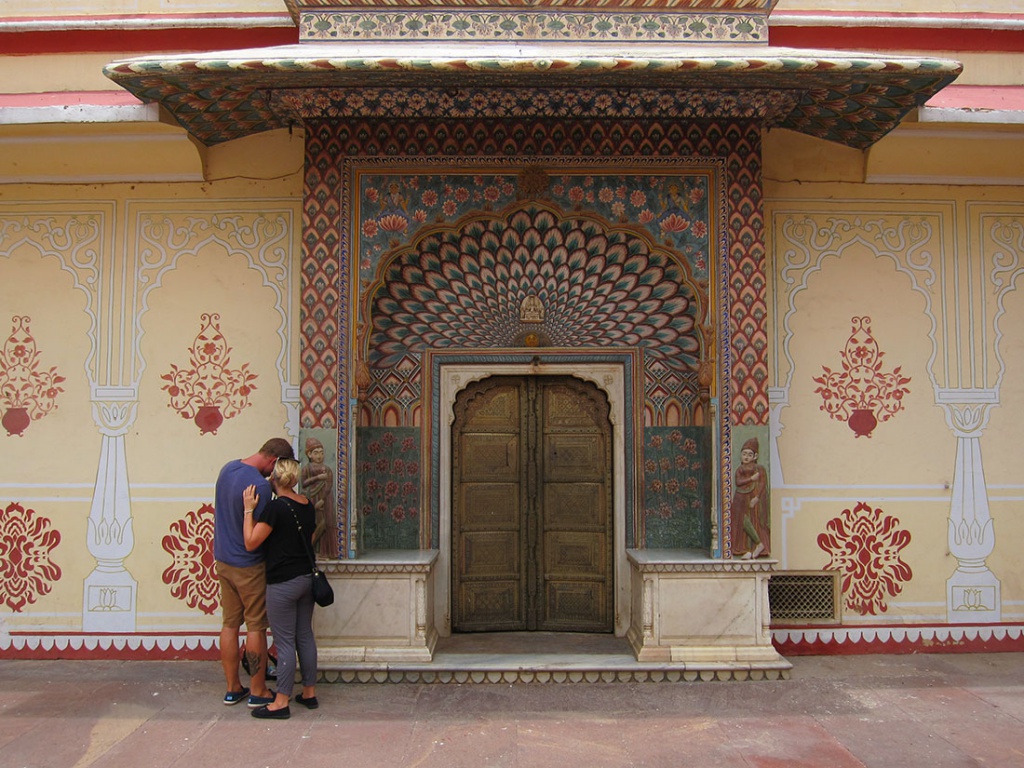
Students who participate in some form of study abroad are shown to increase their intercultural learning, disciplinary knowledge, and proficiency in a second language. Study abroad helps students form a globally minded view of the world. These students also tend to display higher levels of international political concern and cross-cultural interest.
Study abroad increases students’ world-mindedness: the ability for people to see viewpoints differing from their perspectives as valuable and to appreciate cultural differences. Westminster’s own passionate study-abroad advocate, Han Kim, public health professor and a leader of the popular May Term Study Experience (MTSE) in Thailand, calls this global citizenship.
“Students need to be able to function as citizens of the world,” Han says. “To be able to function in a different type of culture, to appreciate it, to understand a little of the basic history, politics, differences—it’s absolutely critical.”
Steve Hurlbut, a member of the Peace Corps for 10 years, a professor, and a leader of Westminster’s service-learning program in India, echoes Han’s sentiments. “I tell my students, ‘Around the world, Americans are famous for being ethnocentric. We are sure that the American way is the best, and people should adapt to us.’ Study abroad lays the foundation for creating multicultural citizens, who communicate with and relate to people with different cultures and values.”
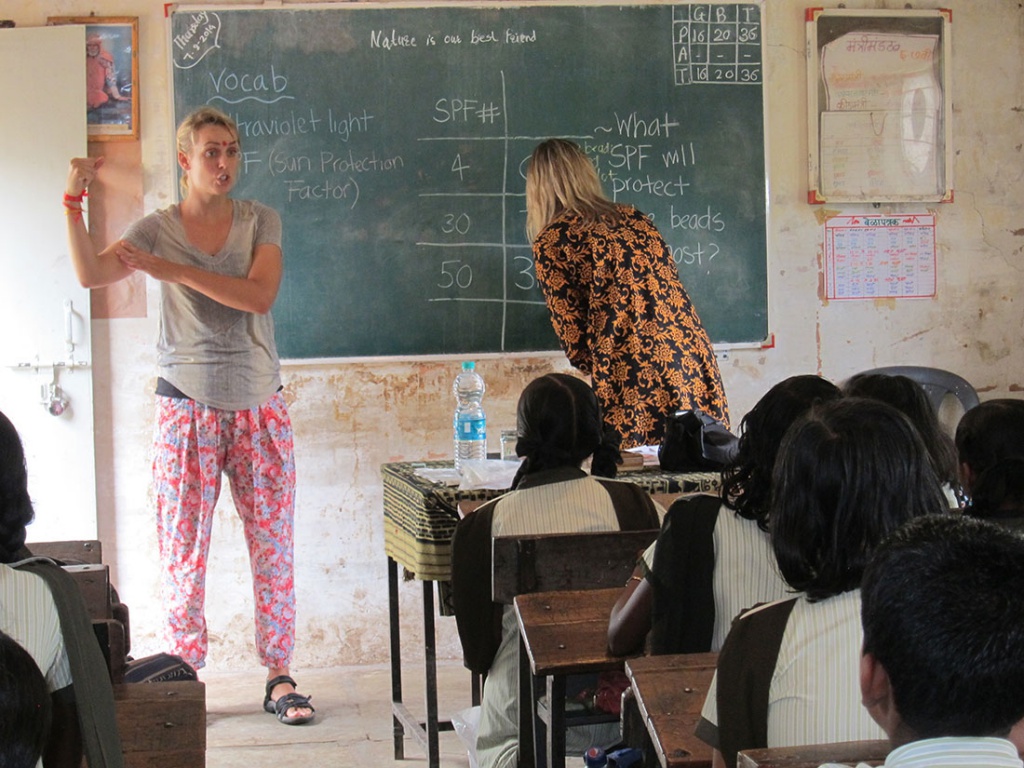
Beyond the external outcomes of study abroad, students are deeply affected internally by their time in another country, gaining a deeper understanding of themselves. In some studies, students have been shown to develop a stronger sense of self-awareness, interpersonal communication skills, and tolerance and empathy for people from other cultures.
More recent research has also shown that studying abroad has other academic effects. Students who spend time abroad during college have higher graduation rates and improved academic performance. Learning abroad—outside the traditional classroom setting—provides more big-picture knowledge. Students begin to understand the cultural context beyond the classroom.
“It’s really important for students to have firsthand international experiences because they complement the coursework we have on campus,” says Sara Demko, assistant provost for global learning. “It’s very different to study in a classroom versus being there, meeting people, and experiencing cultures and languages.”
Service Learning Abroad
Westminster has two prominent programs that exemplify the intersection of global consciousness and social responsibility: the MTSE in Thailand and the Summer International Service Learning program in India.
Now in its eighth year, the MTSE Concepts in Global Citizenship: Service Learning in Thailand was the brainchild of Han Kim and Peter Ingle, professor of education. Coming from a similar program at the University of Utah, Han was excited to find a way to implement such a program at Westminster. He joined forces with Peter to craft a service-learning program focused on cultural immersion and functioning in a global society. They deemed their concept “global citizenship,” and the experience was born.
“It’s more than just service: a big part of the trip is cultural immersion,” Han says. “On so many service trips students never really get to know the local people, they never understand the culture, and they’re never immersed in the culture. If you’re going to do any good, any help, you need to be familiar with the local cultures. What are the norms? The history? The relationship with colonialism? If you truly want to do long-term good, the first step is cultural immersion.”
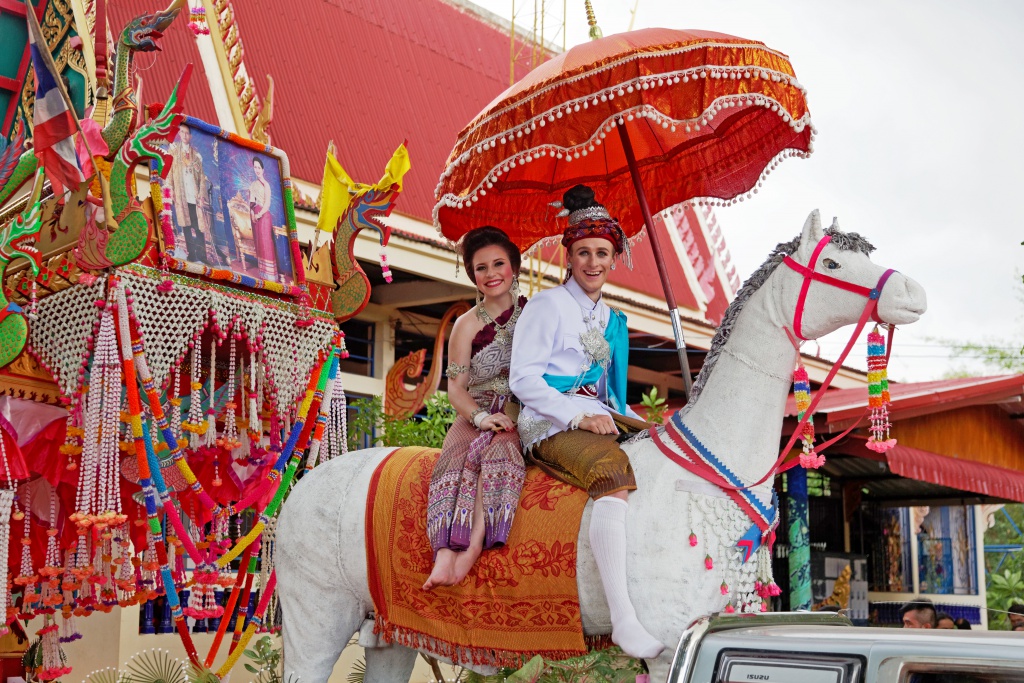
Han addresses this need for cultural immersion by having the students participate in homestays with local families, cultural events, and everyday activities—like fishing and planting rice. He wants to show students life in rural Thailand.
The month-long experience is also designed to give students a well-rounded view of Thailand—something that Han has noticed is sometimes missing from other service trips. “So many service trips end up being poverty tourism, which pisses me off,” he says. “Let’s go look at the worst and feel sorry for them. No. Thailand is a beautiful culture, and there are parts that we should emulate. It’s a rapidly developing country; there’s a lot of wealth—and wealth disparity. There are beautiful beaches. It’s all part of Thailand, and we show all of it.”
Through the study experience, Han seeks to give students an understanding of the educational, health, and developmental needs of rural Thai citizens. In addition to cultural excursions, students participate in educational field trips and service projects designed to provide benefits to the local people. “It’s really an inspiring trip for a lot of students,” he says. “It forces them to reevaluate what they want to do with their lives. It shows them that they can do good in the world: maybe not save it, but that there are things to do that can help a lot of people.”
This is true for MacKenzie Mitchell (’14), a graduate student at Boston University’s School of Public Health and alum of the Thailand experience. “This trip helped me to think more critically about being an outsider coming in to work on a health issue,” MacKenzie says. “It changed the way I think about not only the international work I want to be involved with, but also the local work I do. Transitioning the focus from short-term fixes to long-term interventions has become a priority in what I do.”
A program with almost as long a history, Education and Economic Development in Rural India, a Summer International Service Learning Experience, is currently in its sixth year. This program was initiated by Ashok Joshi—former CEO of Cermatec, native of India, and current Utah resident—as a way to address language-learning obstacles and the resulting lack of opportunities he saw firsthand in the rural town of Wai, India.
Working with former Westminster president Michael Bassis, former provost Cid Seidelman, former professor of education David Stokes, and director of campus spiritual life, Jan Saeed, Ashok created a long-term plan for an ongoing program that would benefit the people of Wai and the students of Westminster. Kristi Jones, a Westminster education professor, has been involved with the program since its inception.
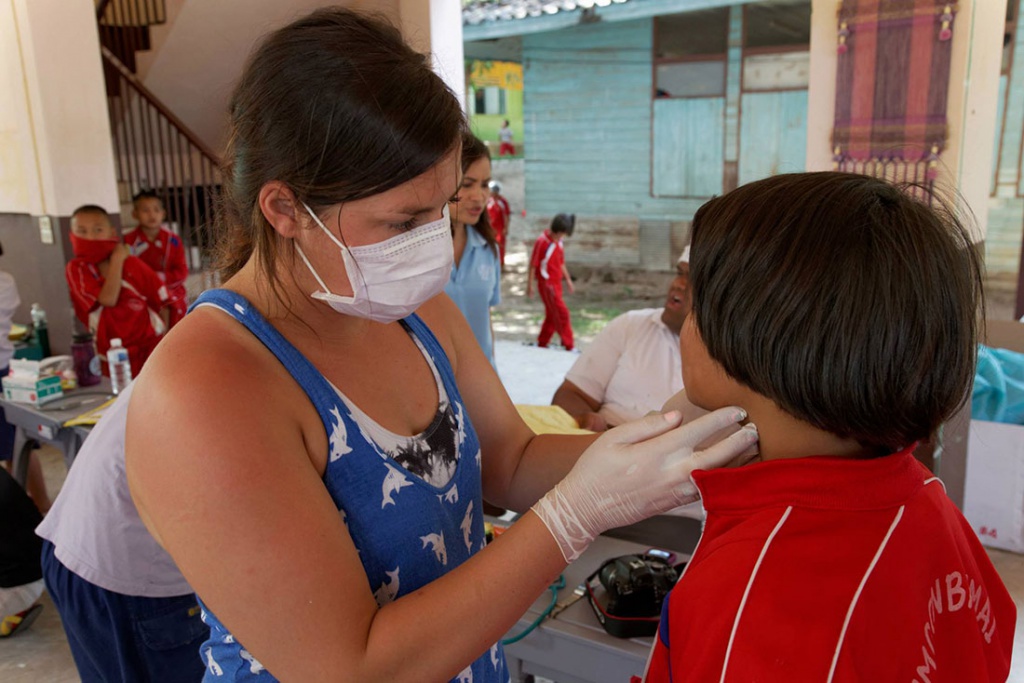
Over the years, Kristi, along with Professor Emeritus of Education Carolyn Jenkins, has helped students create progressive teaching plans that they could model for local Wai teachers. What resulted is an innovative program that combines teaching with other disciplines for an immersive experience.
Similar to Han’s Thailand experience, the India experience is designed so students can participate in service learning and immerse themselves in a new culture through homestays and cultural activities. “Because of relationships with our partners in India, we get to have experiences that would be really hard to have if you were traveling as a tourist,” Kristi says.
Though teaching remains constant, the students participate in other service projects each year. They’ve partnered with groups like the Wai Akshar Institute, a school for children with special needs, and a local library, in addition to implementing new projects like a women’s book group that’s still running today. This year, they led an art project with the Akshar Institute and started a microfinance program for a local women’s group.
Regardless of changes year to year, the experience has a consistent theme: the importance of learning by doing—and helping. “The nature of service-learning trips is that putting yourself in a collaborative working situation is the best way to get the most out of the trip,” says Steve, a trip leader. “There’s no way you can learn more than actually working on a project. The need to get things done is a deeper cross-cultural experience than anything else you could organize. We put students in situations where they see firsthand what it’s like to work with people with different values, and they’re learning from that.”
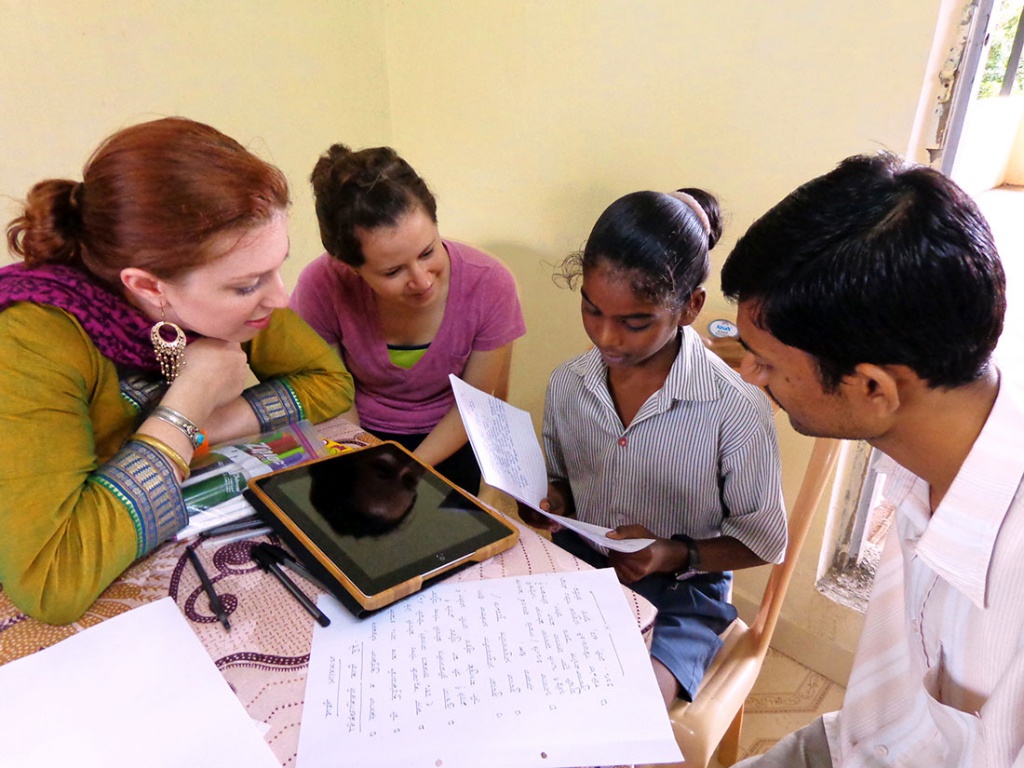
Kristi adds, “When students are immersed in cultural relationships—not studying from a book or looking out a window—and responses are being expected from them, it gives them a new perspective.”
Both the Thailand and India experiences emphasize that service learning is more than just service: it’s a commitment to cultural understanding and acceptance.
Graduate International Integration
Westminster graduate programs are taking international learning to the next level, integrating it into the core curriculum. Three such programs are the Master of Business Administration (MBA), Master of Strategic Communication (MSC), and Master of Arts in Teaching (MAT).
For approximately a decade, the MBA program has taken students on 10-day international learning experiences. Students have gone to Chile, Peru, Brazil, China, and various countries in western Europe and Southeast Asia. During the experience, students apply their studies while visiting a variety of businesses to learn more about how they operate within their unique cultural context.
For the past five years, Baptiste Prévot, the MBA and graduate programs operations director, has been involved in the program. Baptiste, a native of France, focues on giving students well-rounded and insightful experiences. “It’s a huge eye-opener for our students,” he says. “For many of them, it’s the first time they’ve applied for a passport. You are the first person to give them an international experience. I want it to be flawless.”
For Nick Hansen (MBA ’11) this attention to detail was a highlight of his travel in France. “The locations we visited were remarkable,” Nick says. “From modern business centers to medieval villages, our trip took us to places most people never get to see in one trip. Each business was a learning experience, from multi-generational wineries to modern nuclear plants. Being able to apply years of study to various scenarios was enormo usly valuable.”
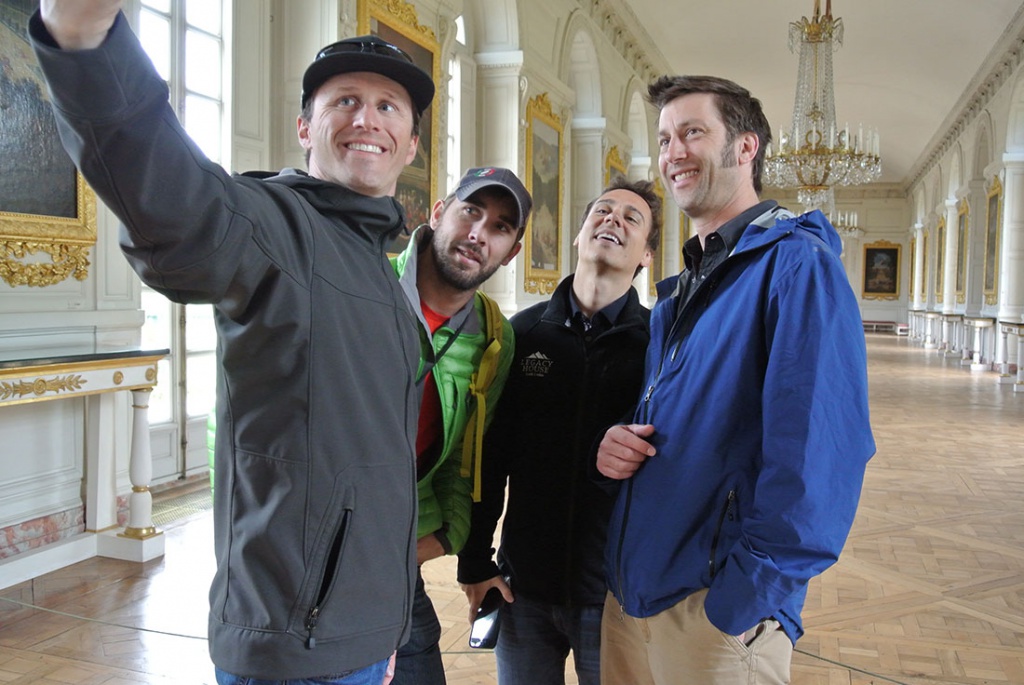
Baptiste approaches the experience similarly to other faculty members: with a focus on people as the gateway to cultural—and business—learning. “You sometimes learn more about a country and the culture by interacting with people, rather than being in a conference room,” Baptiste says. “I try to avoid conference-room trips. I like to be on the floor in the factory. I want to meet with the people.”
His focus on people goes beyond the actual experience and influences his motivation for stressing the importance of international travel. “You sit on a campus with international students; you have refugees from other countries and nations living here,” Baptiste says. “It’s important for students to go and feel like foreigners in another country so they can understand how others feel.”
Westminster’s MSC program also uses international experiences as a way to implement what students have been learning in the program and increase their global engagement. “Students utilize their knowledge and skills by working on a team project with an international client,” says April Blair, the MSC programs coordinator. “The trip gives them an opportunity to see their work implemented and to further interact with the client. A lot of students experience a change internally. The international experience instills in them a desire to continue to serve.”
In 2014 and 2015, students worked with Peruvian Hearts, a nonprofit focused on empowering girls through education. In spring 2016, students partnered with the Desmond Tutu HIV Foundation in South Africa to develop marketing materials that help reduce the stigma surrounding HIV/AIDS.
April stresses the importance of students engaging with and learning from other cultures through travel. “We can see the effects of globalization every day,” she says, “The United States alone is a melting pot. There are immigrants and refugees here; there are organizations that have ties internationally. In the communications field, it is imperative to interact in a way that is culturally sensitive to everyone. Through the international experience, our graduates are able to bring that expertise to the table.”
Since 2008, the MAT program has been using international experience as a way for students to understand the cultural background of many of the young students they teach. The MAT students typically travel to Mexico but have also visited Guatemala and Nicaragua.
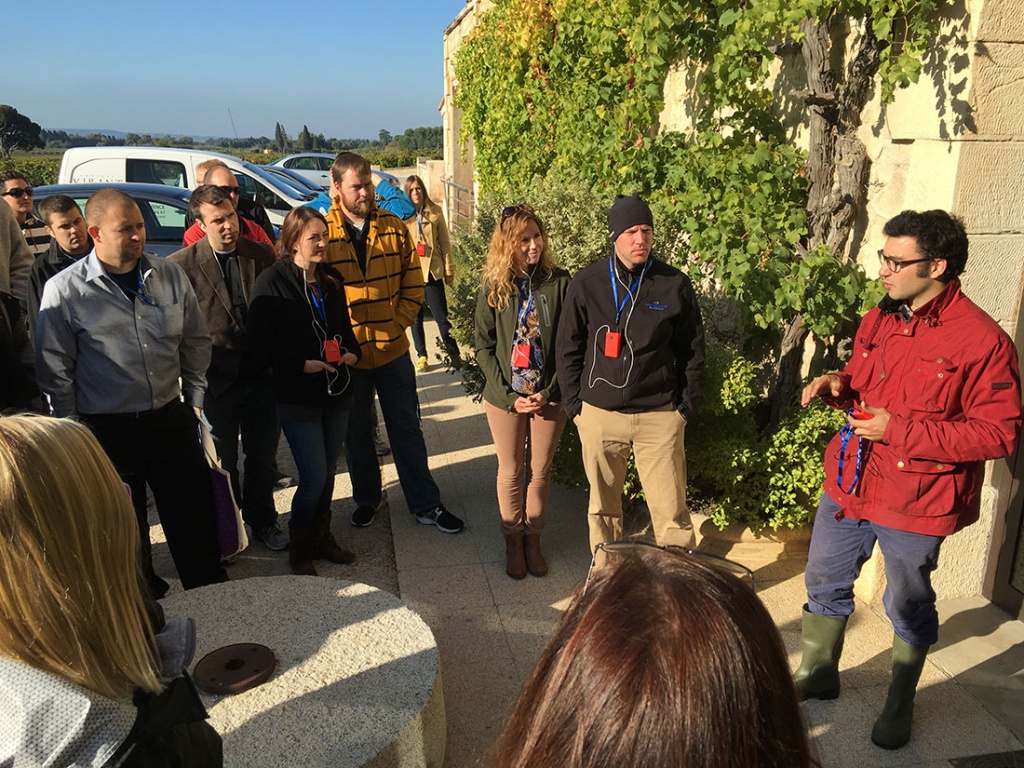
The program emphasizes the funds of knowledge the people in these countries have and seeks to show students the value of that knowledge. “The goal of incorporating travel into the program is to show students the historical and cultural context that their immigrant students are coming from,” says Peggy Cain, an education professor in the MAT program. “We want them to understand the schools and conditions in rural Mexico.”
The program uses a combination of culturally immersive activities—like homestays with local families—and educational excursions to develop student understanding and empathy. Peggy also hopes the experience helps dispel some of the stereotypes of Mexicans and Latin Americans. “Being in situations where they don’t know the language or the cultural codes gives students more empathy,” she says. “For some, it’s a transformative experience. They find many of their stereotypes about Mexicans have been challenged by the experience, and they have to rethink the assumptions they’ve made about their students.”
The MAT program gives students the opportunity to connect with people of other cultures, giving them skills that will make them better, more empathetic teachers, Peggy notes. “Study-abroad experiences help us see people in other countries as human beings with names, faces, and stories,” she says. “It’s easier to ignore people, to be scared of them, or to think that they aren’t important when we don’t know them. A study-abroad experience helps us see the connections between us.”
An Impactful Experience
Studying abroad is a transformative time for many students, triggering growth personally and academically. Sara Demko, assistant provost for global learning, has seen this many times. “Over and over again I have students and alumni who say they are so grateful for their study-abroad experience because it changed their perspectives of the world,” she says. “It changes students’ life paths: they meet a future partner, learn a language, change their major, change their career goals. It’s a high-impact experience that changes students for the better.”
Han Kim has also noticed the long-term effects his Thailand MTSE has had on students. Many return with a new focus or major. They become more passionate about public health and global understanding, going on to volunteer with the Peace Corps and refugee centers.
MacKenzie Mitchell (’14) is one of those students. “I was studying psychology, but after this trip, I changed my major to public health,” she says. “Now I’m studying global health while getting my master’s in public health, and in the future I want to work in women’s health education in refugee services. This trip totally rearranged my priorities and career choices.”
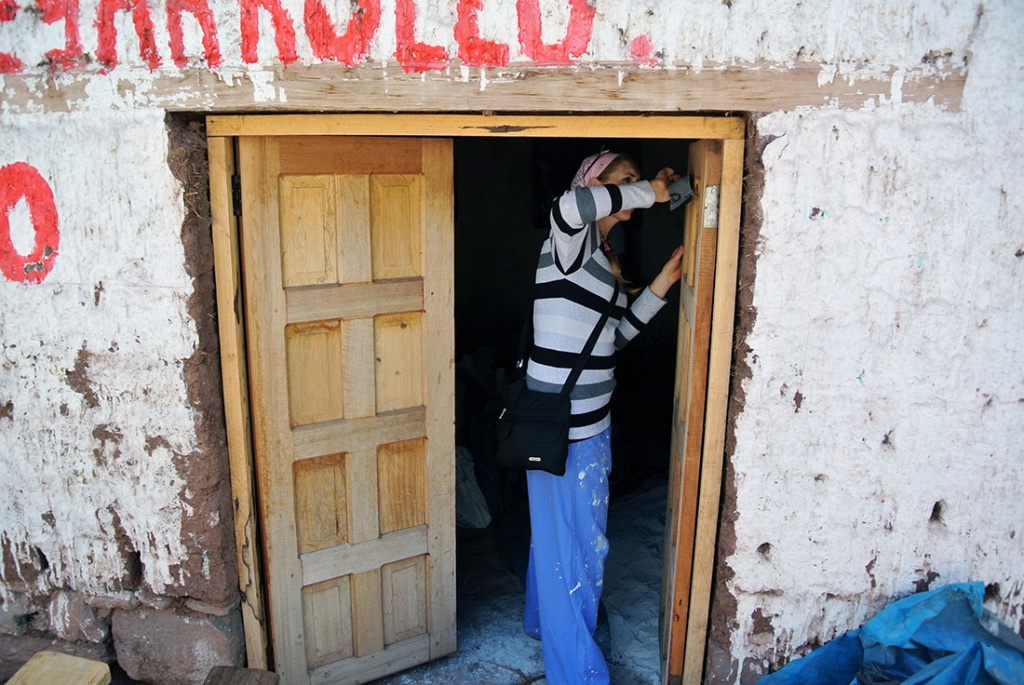
Han says he firmly believes that as much learning occurs outside of the classroom as it does inside, and that sometimes the learning outside the classroom is the stuff students remember the most.
“I have learned more from traveling, being immersed in a culture, and seeing issues firsthand than I did in any semester-long lecture class,” MacKenzie says. “If you are open to it, you can learn more from the people you are serving than you could possibly ever teach them.”
The socializing that study abroad facilitates also leaves lasting impacts on students. Faculty, alumni, and students alike listed close bonds and strong relationships as one of the most impactful aspects of studying abroad. Students develop lasting bonds with other students, faculty members, and locals. “That’s something to emphasize,” Han says. “It’s about relationships. Travel’s not about the place; it’s about the people. That’s the essence of global citizenship: camaraderie and relationships. The students make lifelong friends, not just with the local people, but the other students as well.”
Even in the much shorter graduate travel experiences, students build relationships that develop into friendships and important business connections. “We really bonded together as students and created some lifelong associations that I’ve revisited many times as I’ve sought help or insight regarding my own career path,” Nick Hansen (MBA ’11) says. “It has become an incredible network. We still meet for lunch and talk business.”
The Future of Westminster Study Abroad
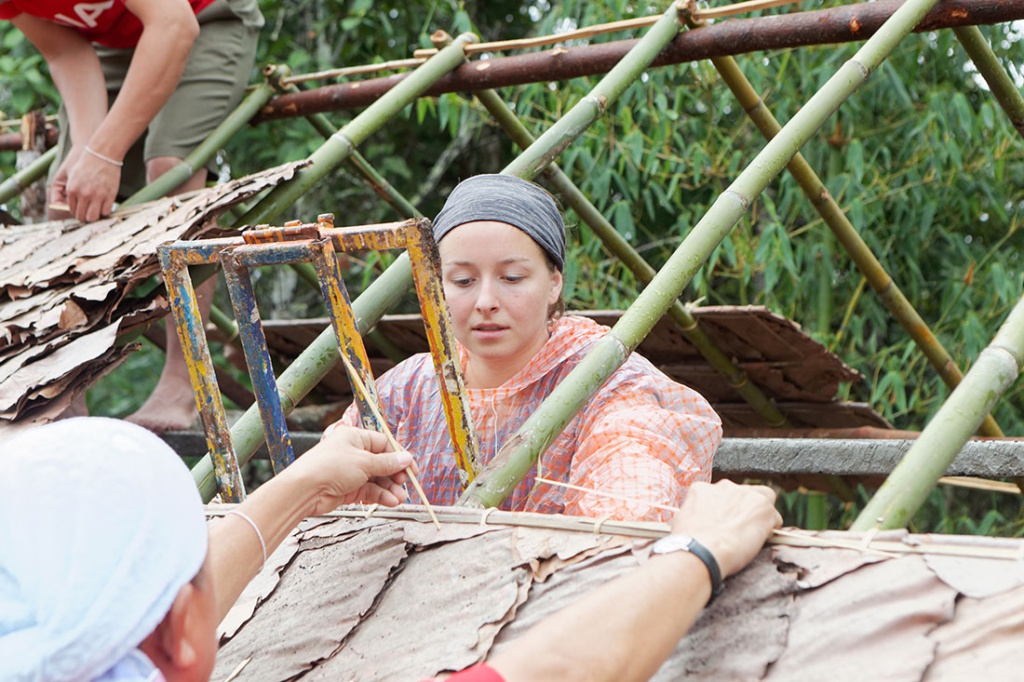
As study abroad continues to grow, Westminster faculty and administrators are looking toward its future and ways to make it more accessible for everyone. Both Han Kim and Sara Demko have fresh ideas to take global engagement to the next level.
“One of my goals is to have everybody go on a study-abroad trip,” Han says. “I would love to see the cost structure for a trip be integrated into the cost of a four-year education: basically, have X amount of dollars per student that could be used for a MTSE or contributed to a study abroad. I’m a firm believer that study abroad—whether it’s a short-term, May Term scenario; a summer; or a semester abroad—is a critical pedagogical tool for any major.”
During Han’s eight years leading a MTSE, he’s had many students who were limited by the cost. “May Term trips are expensive,” he says. “I hear all the time, ‘I can’t afford it. I have to work all summer to pay for college.’ And these are some of the students who would benefit the most from it.”
Sara has also noticed that cost is a large barrier for many students when it comes to studying abroad. Some programs allow students to pay Westminster tuition—and use Westminster scholarships—while others are completely out-of-pocket. Students can use federal funding and apply for outside scholarships, but Sara hopes to have more Westminster scholarships to offer students. “We have a few scholarships, and that’s definitely something that we’re trying to increase,” she says. “A goal of the college is to have an endowed study-abroad scholarship for semester-long study abroad or MTSEs.”
One of the other challenges students face is fitting study abroad into their already full four-year plans. The introduction of the WCore Engaging the World requirement as part of the new general education program is an effort to change this. “The challenge at Westminster has been that study abroad has been seen as something extra, not an integral part of the degree plan,” Sara says. “Now with Engaging the World, we’re trying to work with the majors and integrate study abroad into the curriculum and the degree path.”
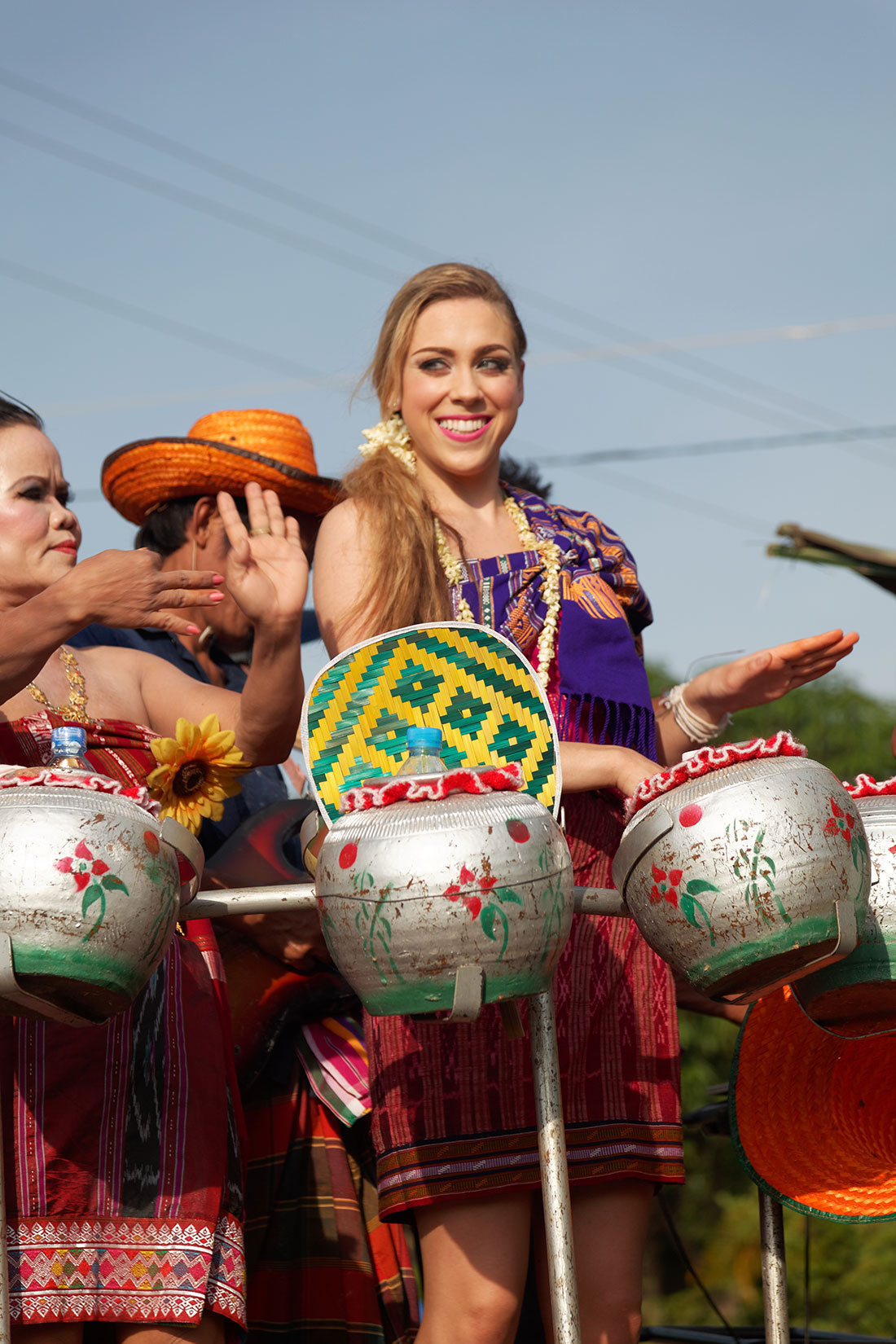
Sara is also working with faculty from 11 majors on a larger initiative for curriculum integration, funded by a Griffin Grant. They are mapping out four-year plans to determine which semester study abroad or MTSE fits best within each major.
Han echoes the importance of curriculum integration, but also wants courses on campus to be taught in ways that support continued learning abroad. He’s focusing on not only how he can further integrate study abroad into courses in the public health major, but also how the college can integrate it into courses in other majors.
“I’d like to see study-abroad coursework deeply integrated into the curriculum,” Han says. “In public health, we have so many students interested in global health. Something I’m pursuing is, can students go abroad to do their capstones? Can they plan the project here and implement it abroad? That’s the kind of deep integration that I think you could do in every major.
International Student Exchange Program (ISEP)
Choose from a global network of 290 universities in 38 countries.
Enroll directly in a foreign university, and take classes in English or the host-country language.
Pay Westminster tuition, room, and meals (scholarships apply).
Westminster Exchange Partner Universities
Study as an exchange student at Westminster partner universities: HTW in Germany and Saxion in the Netherlands.
Pay the equivalent of full-time Westminster tuition (scholarships apply).
Approved Study-Abroad Providers
Choose from an approved list of study-abroad-program providers that offer a variety of programs around the world.
Pay all program costs directly to the study-abroad provider.
MTSE and Summer StudyExperiences
Choose a one- to three-week MTSE or Summer Study Experience.
Pay only the travel expenses: students enrolled full-time in the Fall and Spring Semesters earn four discounted credit hours that can be applied toward study-experience tuition.
Globally Engaging at Home
Travel on your own.
Take advantage of service opportunities.
Get involved with your local international community.
About the Westminster Review
The Westminster Review is Westminster University’s bi-annual alumni magazine that is distributed to alumni and community members. Each issue aims to keep alumni updated on campus current events and highlights the accomplishments of current students, professors, and Westminster alum.
GET THE REVIEW IN PRINT Share Your Story Idea READ MORE WESTMINSTER STORIES